Cambridge agave seedlings shared after rare flowering plant dies
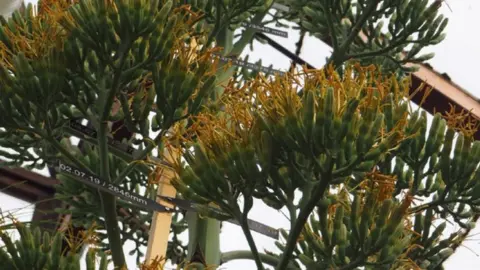 CUBG
CUBGPeople who have taken up gardening during lockdown could try nurturing a new plant described as an "asparagus on steroids" - if they have decades to spare and plenty of patience.
Seedlings from Cambridge University Botanic Garden's giant agave that flowered after 57 years - and then died - have been left out to collect.
The 4.5m (14.5ft) plant was cut down last week, after blooming last year.
Staff collected seedlings, saying they wanted to "share the agave love".
The agave vivipara flower "spike" appeared in June 2019 and grew so tall it almost reached the glasshouse roof.
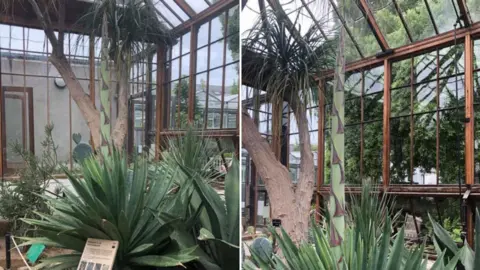 CUBG
CUBG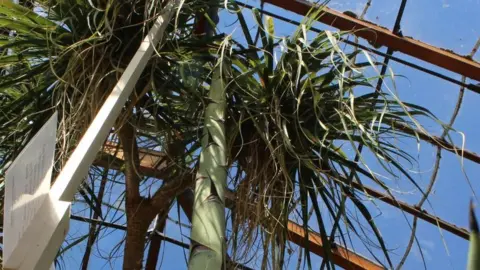
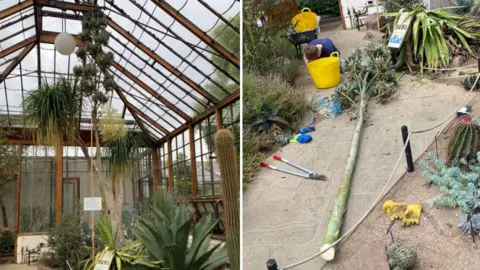 CUBG
CUBGIt flowered for the first - and only - time after keeping gardeners waiting for more than half a century.
Staff had been tending the agave, a native of central America and part of a family of plants from which tequila is made, since 1962 but the long-awaited flowers, which smelt like broccoli, were "not as pretty as people might expect", they said.
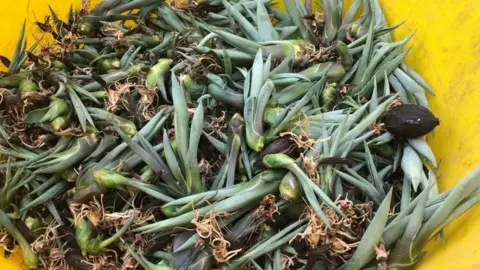 CUBG
CUBGAgaves are generally referred to as "century plants" as they can take up to 100 years to flower and are monocarpic, which means they only flower once, set seed and then die.
The garden's specimen was cut down last week, and left to dry out further in a potting shed.
Staff "also removed all the germinated seedlings and collected them in a bucket which is now sitting at our Brookside exit, for visitors to take as we share the agave love", they wrote on social media.
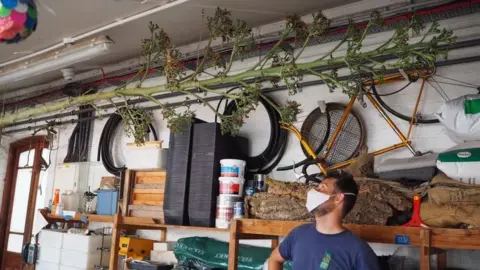 CUBG
CUBG
Find BBC News: East of England on Facebook, Instagram and Twitter. If you have a story suggestion email [email protected]
